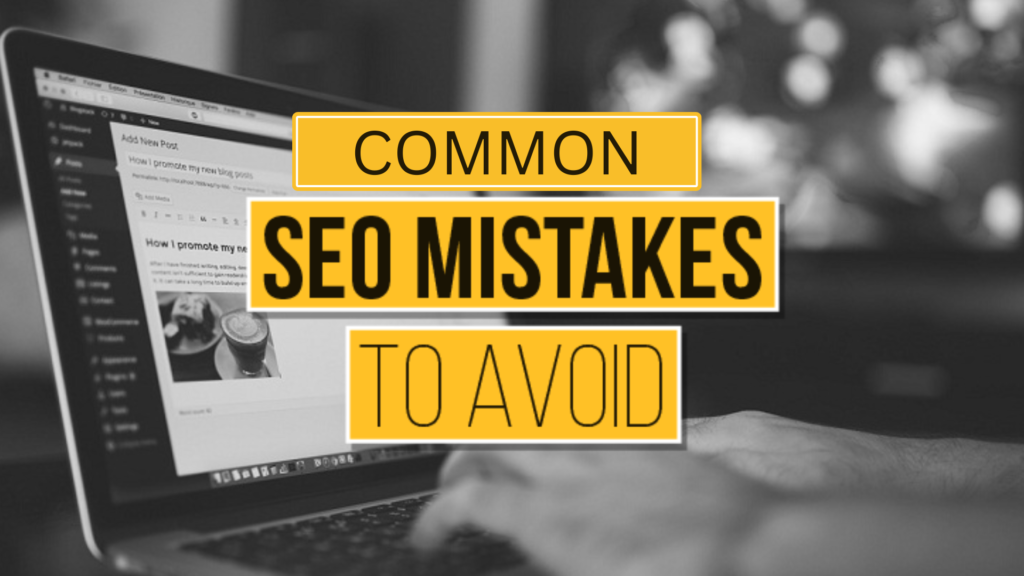
Mastering SEO (Search Engine Optimization) is essential for increasing your website’s visibility and driving more traffic digitally . Yet, many people make common SEO mistakes that can hinder their success. Whether you’re new to SEO or looking to fine-tune your strategy, understanding and avoiding these mistakes is crucial. In this blog, we’ll uncover frequent SEO pitfalls and share practical tips for avoiding them using DSEO (Dynamic SEO) techniques.
1. Overlooking Keyword Research
Why Keyword Research Is Essential
Keyword research is the cornerstone of effective SEO. It involves identifying the words and phrases your audience uses to search for information related to your business. Proper keyword research helps ensure your content aligns with what people are looking for, driving targeted traffic to your site.
Common Mistake: Skipping keyword research or targeting overly broad, competitive terms can result in poor search visibility and missed opportunities.
How to Avoid It:
- Utilize DSEO Tools: Tools like Google Keyword Planner, SEMrush, and Ahrefs are invaluable for discovering relevant keywords. Focus on terms that have a good search volume but aren’t overly competitive.
- Target Long-Tail Keywords: Use more specific phrases like “best dynamic SEO strategies for small businesses” instead of generic terms like “SEO.”
- Understand User Intent: Ensure that your keywords match what users are searching for and what they expect to find on your site.
2. Neglecting On-Page SEO
What Is On-Page SEO?
On-page SEO involves optimizing elements within your website, such as title tags, meta descriptions, and content, to improve search engine rankings and enhance user experience.
Common Mistake: Many websites neglect to properly optimize their on-page elements, leading to missed ranking opportunities.
How to Avoid It:
- Optimize Title Tags and Meta Descriptions: Create engaging, keyword-rich titles and descriptions. For example, “Dynamic SEO Strategies for 2024: How to Improve Your Rankings” is more compelling than a generic “SEO Tips.”
- Use Header Tags Effectively: Structure your content with H1, H2, and H3 tags to make it more readable and easier for search engines to understand.
- Incorporate Keywords Naturally: Ensure your primary and secondary keywords are used naturally throughout your content to improve relevance and readability.
3. Failing to Optimize for Mobile
Why Mobile Optimization Is Crucial
With a significant portion of web traffic coming from mobile devices, having a mobile-friendly site is essential. A website that isn’t optimized for mobile can lead to poor user experiences and lower search rankings.
Common Mistake: Failing to implement a responsive design can result in a subpar experience for mobile users.
How to Avoid It:
- Implement Responsive Design: Use a responsive design that ensures your website adapts to different screen sizes and devices.
- Test Mobile Performance: Regularly test your site’s mobile performance with tools like Google’s Mobile-Friendly Test and make necessary adjustments.
- Optimize Mobile Page Speed: Improve load times by compressing images, using a content delivery network (CDN), and minimizing code.
4. Creating Low-Quality Content
What Constitutes Quality Content?
Quality content is valuable, engaging, and relevant to your audience. It should provide useful information and address the needs of your readers.
Common Mistake: Publishing thin or duplicate content that doesn’t offer real value can hurt your SEO efforts and fail to engage your audience.
How to Avoid It:
- Produce Unique, Valuable Content: Create in-depth and original content that stands out. For instance, a comprehensive guide on “Implementing Dynamic SEO for Better Visibility” offers more value than a brief overview.
- Update Content Regularly: Keep your content fresh and relevant by updating it regularly to reflect current trends and information.
5. Ignoring Technical SEO
What Is Technical SEO?
Technical SEO involves optimizing the backend of your website to ensure it’s crawlable and indexable by search engines. This includes aspects like site speed, crawl errors, and URL structure.
Common Mistake: Overlooking technical SEO issues can lead to problems like slow load times and crawl errors, which can negatively impact your rankings.
How to Avoid It:
- Address Crawl Errors: Use tools like Google Search Console to identify and fix crawl errors and broken links.
- Improve Site Speed: Enhance page load times by optimizing images, using a CDN, and streamlining your code.
- Maintain Clean URLs: Use descriptive, keyword-rich URLs. For example, “yourwebsite.com/dynamic-seo-tips” is clearer and more effective than “yourwebsite.com/page-123.”
6. Neglecting Backlink Building
Why Backlinks Matter
Backlinks are links from other websites to yours, and they are a critical factor in SEO. They signal to search engines that your site is authoritative and trustworthy.
Common Mistake: Ignoring backlink building or using low-quality link-building practices can hinder your SEO efforts.
How to Avoid It:
- Focus on Quality Backlinks: Aim for backlinks from reputable and relevant sites rather than a large number of low-quality links.
- Use DSEO Techniques: Employ strategies like guest blogging, content promotion, and digital PR to earn high-quality backlinks.
- Avoid Black-Hat Tactics: Steer clear of unethical link-building practices such as buying links or participating in link schemes.
7. Overlooking Analytics and Tracking
Why Analytics Are Important
Analytics provide insights into your SEO performance, helping you understand what’s working and where improvements are needed.
Common Mistake: Not setting up or regularly reviewing analytics tools means missing out on valuable data that could guide your SEO strategy.
How to Avoid It:
- Set Up Analytics Tools: Use Google Analytics and Google Search Console to track your traffic, user behavior, and search performance.
- Monitor Key Metrics: Keep an eye on metrics such as organic traffic, bounce rate, and conversion rates to gauge your SEO success.
- Adjust Based on Data: Use the insights from your analytics to continuously refine and improve your SEO strategies.
Conclusion
Avoiding common SEO mistakes is essential for improving your website’s visibility and achieving your digital marketing goals. By leveraging DSEO strategies and focusing on keyword research, on-page and technical SEO, mobile optimization, quality content, backlink building, and analytics, you can enhance your online presence effectively. Regularly review and refine your SEO practices to stay ahead of the competition and achieve sustained success.
Call to Action: Ready to boost your SEO? Start by auditing your current practices and implementing these tips. For more expert advice and updates on SEO, subscribe to our newsletter and stay informed!

